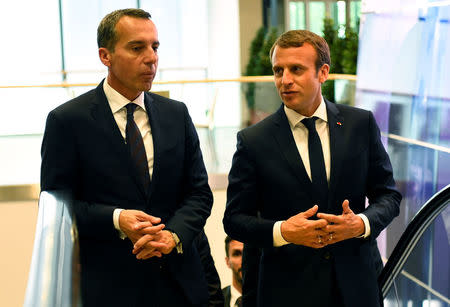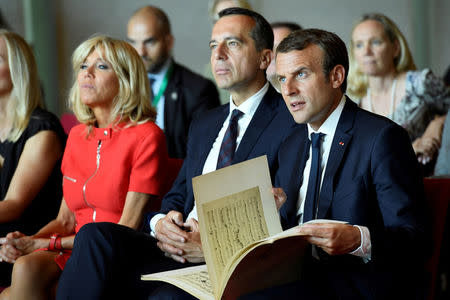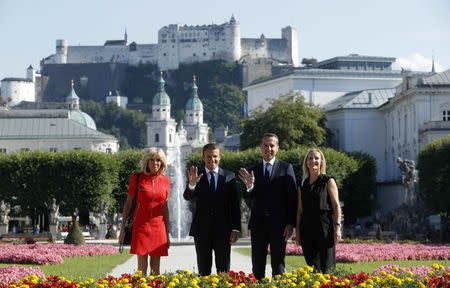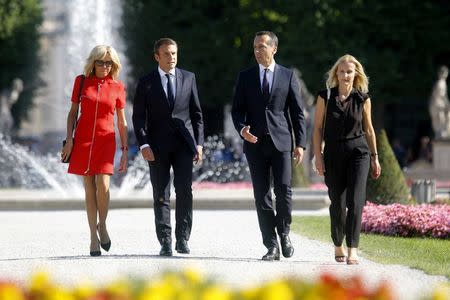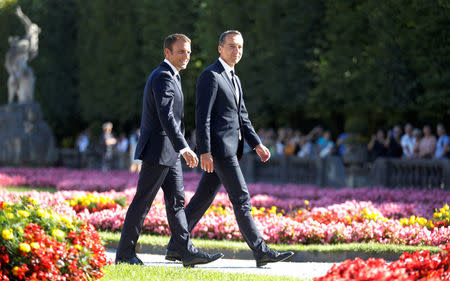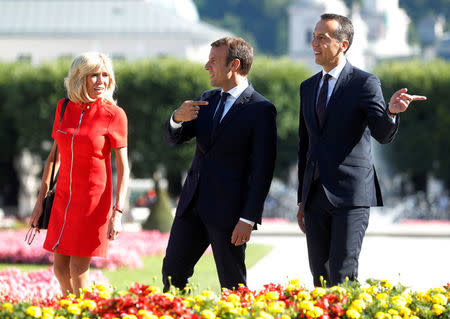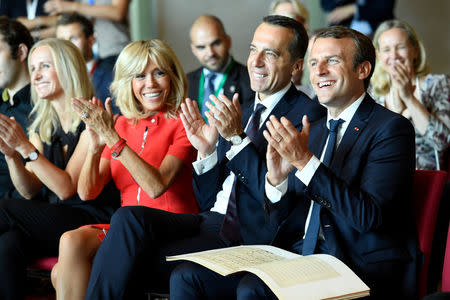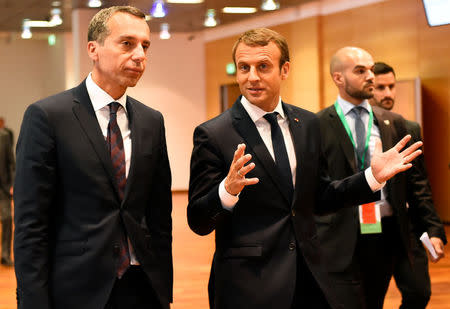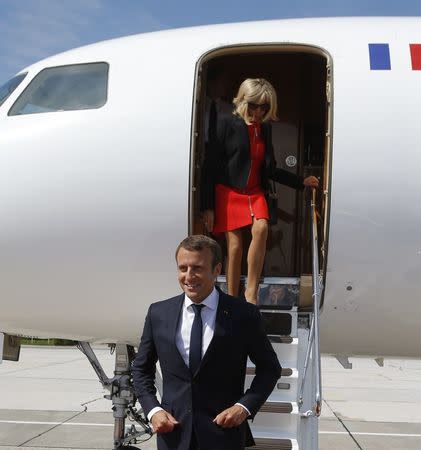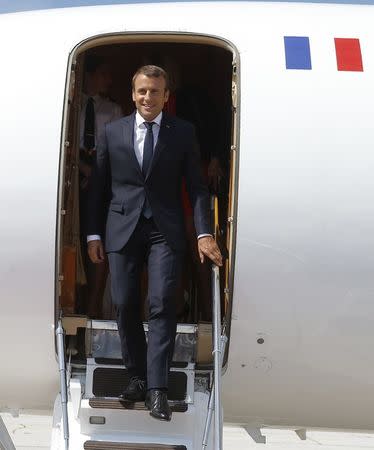France's Macron gains eastern foothold on EU 'posted workers'
By Francois Murphy SALZBURG, Austria (Reuters) - French President Emmanuel Macron on Wednesday won the support of two eastern European states in his campaign against EU rules on the employment abroad of workers from low-pay countries, calling the current system a "betrayal" of European values. Macron has pledged to overhaul a system under which "posted" workers can be sent to other European Union states on contracts that must guarantee the host country's minimum wage, but under which taxes and social charges are paid in the home nation. He says the system creates unfair competition in wealthier nations like France and Austria, a country that borders four eastern European countries and where on Wednesday he met Chancellor Christian Kern, an ally on this issue. "The single European market and the free movement of workers is not meant to create a race to the bottom in terms of social regulations," Macron told reporters after meeting Kern in the city of Salzburg. Macron is on a three-day tour of central and eastern Europe that he hopes will help break a deadlock between western nations and poorer eastern European states that has lasted for years. "The posted workers' directive as it currently functions is a betrayal of the European spirit in its essence," he added. Macron and Kern later held a meeting with the Czech and Slovak prime ministers, after which all four said they had agreed to try to reach a deal by a European leaders' summit in October. Estonia, which holds the EU's rotating presidency, is due to table a new proposal in September. "We are very close to agreement. We see October 2017 as a realistic date by which we could reach an agreement," Slovak Prime Minister Robert Fico told a joint news conference after the meeting. COLD SHOULDER By enlisting the Czech and Slovak leaders, Macron was coopting half of the four-nation Visegrad group, which has opposed western European countries on issues including migrants and reform of the posted workers' directive. Macron is shunning the two other, more hardline Visegrad countries - Poland and Hungary - on his trip, which will take him to Romania and Bulgaria. A senior French diplomat said that was a deliberate signal to Warsaw and Budapest. "We, and I think the Czech prime minister agrees, will make a maximum effort so that the V4 agrees on this issue," Fico said, referring to the Visegrad group. The four leaders in Salzburg backed Macron's call for workers to be paid the same amount for the same work in the same place. But they stopped short of supporting Macron's plan to limit the duration of these contracts to one year rather than two under a new European Commission proposal. "We have an understanding here that it should be less than the originally proposed 24 months," Kern said, adding that they had also agreed to cooperate more closely in policing the rules. It was not clear whether concessions were made in other areas to win over the Czech and Slovak leaders. They and other eastern European countries are particularly opposed to accepting quotas of asylum-seekers who would be redistributed around the bloc. They also said they wanted any moves toward faster integration by countries in the "core" of the EU to be available to all member states. Macron wants to harmonize fiscal rules, build up a common European investment capacity and a euro zone budget. "The posted workers' directive solves a certain problem but we have to also solve the fundamental issue, which is the huge differences in living standards in individual parts of the EU," Czech Prime Minister Bohuslav Sobotka told the news conference. (Additional reporting by Michel Rose and Jean-Baptiste Vey in Paris, Tatiana Jancarikova in Bratislava and Jan Lopatka in Prague; Editing by Richard Lough and Mark Heinrich)

